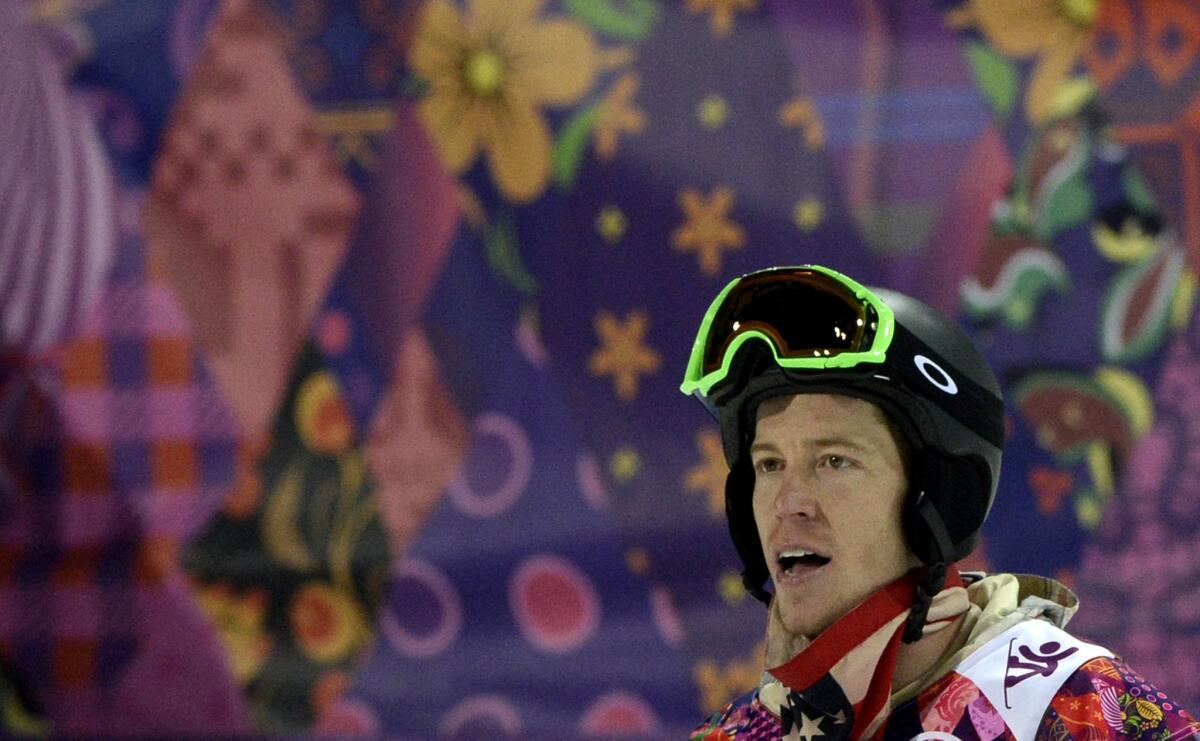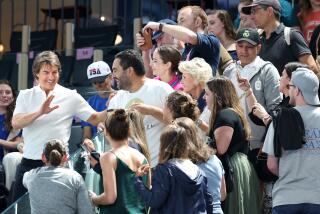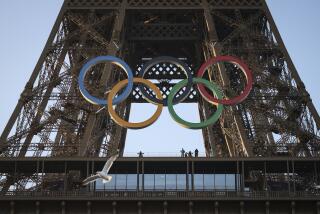Sochi Olympics audience levels exceed NBC’s expectations

Despite Bob Costas’ persistent eye infection, a heat wave in Sochi and slightly lower NBC prime-time numbers compared with four years ago, NBCUniversal executives are giving the Winter Olympics a high score.
Audience levels have exceeded the network’s expectations, NBCUniversal executives said Wednesday, particularly when considering the nine- to 12-hour time difference between Russia and the United States.
Most viewers are aware of the results of marquee competitions well before NBC’s prime-time coverage begins. But that hasn’t stopped audiences from flocking to their TVs at night to watch hours of NBC’s Olympics coverage.
NBC’s prime-time ratings are down about 2% compared with the Vancouver Olympics, a compatible venue that allowed many of the events to be broadcast live on NBC -- which helped to drive viewer interest.
PHOTOS: Winter Olympics in film
“Our strategy for providing more coverage has once again proved popular with American audiences,” NBC Sports Group Chairman Mark Lazarus said Wednesday in a conference call with journalists.
The Olympics always have served as a petri dish for studying audience behavior, and this year’s Games have been no exception.
Viewership on digital platforms during the Sochi Winter Olympics has jumped 54% compared with the Vancouver Games. More people now have tablets and smartphones, and NBC has been streaming hundreds of hours of live competitions to satisfy the demand among hard-core fans.
More than 600,000 people watched Shaun White’s snowboarding performance on Tuesday live on a digital device. Several hours later, an estimated 24 million people watched NBC’s prime-time coverage that featured White finishing fourth in the half-pipe competition -- just out of reach for a medal.
“Most people knew he hadn’t won, but they wanted to see how it happened,” Lazarus said. “The [prime-time] ratings were tremendous.”
NBC research executives credited digital platforms for increasing interest in the Olympics particularly among younger viewers, which should help to sustain interest in an event that occurs every two years. That’s important because NBCUniversal agreed to pay more than $4.38 billion for the U.S. media rights for the Olympics through 2020.
PHOTOS: Behind the scenes of movies and TV
“Only a few days into the Games, we are seeing some interesting findings emerge,” NBCUniversal research president Alan Wurtzel said.
An estimated 87% of viewers said they weren’t discouraged from watching at night even though they knew some of the results. People who watched the Olympics on digital devices were more likely to watch the TV coverage too.
“The cross-platform viewing, the way people are viewing not just the Olympics but all of our programming, is really what the future is going to be,” Wurtzel said.
That’s an encouraging sign for investors because it appears that digital consumption is not ravaging the economics of television the same way that it has for newspapers and the music industry.
Instead, for huge events such as the Olympics, the multiscreen experience has meant more consumption -- not less.
NBCUniversal’s corporate strategy to showcase its cable channel, NBC Sports Network, has paid off too. Viewership is up more than 80% compared with the 2012 London Summer Games.
“I’m very optimistic that these will be terrific Games -- from a performance stand-point,” Wurtzel said.
ON LOCATION: Where the cameras roll
The sport of curling has proved popular -- more than 5 million people watched curling coverage on NBC’s various channels Monday.
Viewer interest has enabled NBC to exceed the ratings that the company had promised advertisers. That’s important because NBC can now sell commercial time that had been held in reserve to compensate advertisers, had the ratings fallen short of estimates.
NBCUniversal had already sold nearly $900 million in advertising for the Games before the events began. Because of that, NBC won’t lose money on its coverage this year -- as it did four years ago on the Vancouver Games.
Larzarus declined to say what has caused Costas’ eye infection, which has sidelined Costas for two nights during NBC’s Olympics coverage. But Russian doctors are working with Costas, Lazarus said.
“It’s been very unfortunate,” Lazarus said. “And no one is more frustrated and bothered by it than him. He’s staying in his hotel, a dark room, and trying to get better.”
ALSO:
Advertisers make $900-million bet on Winter Olympic Games
NBC “confident” in Russian security measures for Sochi Olympics
KNBC Channel 4 leaves Burbank; moves to new LA broadcast center
Twitter: @MegJamesLAT
More to Read
From the Oscars to the Emmys.
Get the Envelope newsletter for exclusive awards season coverage, behind-the-scenes stories from the Envelope podcast and columnist Glenn Whipp’s must-read analysis.
You may occasionally receive promotional content from the Los Angeles Times.








